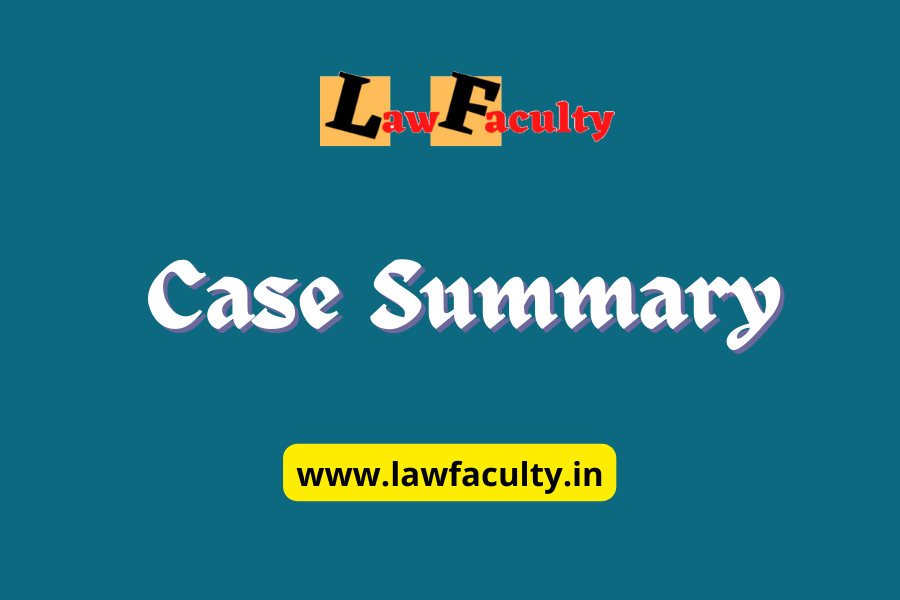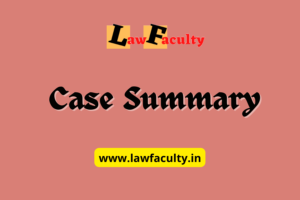Abhilasha v. Parkash and Ors
Citation – Cri. Appeal No. 615 of 2020
Bench – Ashok Bhushan, R. Subhash Reddy, M.R. Shah
Date – 15 September 2020
Facts of the Case
The purpose of this appeal is to challenge the High Court’s decision. A woman filed an application under section 125 of the CrPC against her husband, claiming maintenance for herself and her three children. The application of the petitioner and two of her children was denied by the Judicial Magistrate. When the daughter filed an application for maintenance under section 125 of the CrPC when she was a juvenile, the magistrate dismissed the case, limiting the daughter’s ability to claim maintenance until she reaches the age of majority. The High Court dismissed the claim under section 482 of the CrPC, holding that the appellant is not entitled to maintenance because she has reached majority and is not suffering from any mental or physical abnormality. The appellant argued that, despite having reached majority in 2005 and being free of any medical or mental illness, she is entitled to maintenance from her father under section 20 of the Act of 1956 until she marries.
Issues
- Whether the appellant is entitled to claim maintenance from her father under section 125 of CrPC, when she already attained majority and she is not suffering from any mental or physical disorder but still she is unmarried?
- Whether the order passed by Judicial Magistrate and the Revisional Court limiting the appellant’s claim until she attains majority deserves to be set aside with a direction to the respondent to continue to give maintenance until she is married?
Laws
- S. 125, CrPC
- S. 20(3), Hindu Adoptions and Maintenance Act, 1956
- S. 482, CrPC
Arguments
The daughter can claim maintenance until she marries, according to the appellant’s lawyer, but this argument was dismissed only on the grounds that she is not suffering from any mental or physical abnormalities or fatal harm. The child’s claim is limited under Section 125 of the CrPC until they reach the age of majority. By virtue of section 20 of the Hindu Adoptions and Maintenance Act, 1956, a daughter who has reached majority and is not suffering from any mental or physical disease or fatal damage can claim maintenance from her father until she marries.
The court held in Lnanak Chand vs. Shri Chandra Kishore Agarwala and Others that section 488 CrPC. allows a prompt remedy and simple procedure before the magistrate court against starving of the deserted wife or kid. It is applicable to all people of all religions. The Family Court also has the authority to issue orders relating to the support of the wife, children, and elderly parents, which can be exercised by a Magistrate of First-class under Chapter IX of the CrPC. Where a family court has not been formed, cases involving the maintenance of the wife, children, and elderly parents must be brought before the District Court or a subordinate court. According to the learned counsel for the appellant, an unmarried Hindu woman can claim maintenance from her father if she argues and establishes that she is unable to support herself, and that the application for enforcement of such entitlement must be made under section 20(3) of the Act of 1956.
Judgement
The court while giving its judgement said that under section 125 of the CrPC, maintenance to a daughter who has reached majority can only be granted if she is suffering from a mental or physical abnormality or a fatal disability that renders her incapable of supporting herself. In this case, the petitioner does not appear to be suffering from any of the injuries listed in section 125, but the question is whether the daughter is entitled to support until she marries according to section 20 of Hindu Adoptions and Maintenance Act.
In Mohd. Ahmed Khan v. Shah Bano Begum 1985 AIR 945 it was held that the term ‘wife’ encompasses not only wedded wives but also women who have married by following the necessary ceremonies prescribed by personal law.
In Jagdish Jugtawat v. Manju Lata and Others I (2001) DMC 605, the court held that Section 20(3) of the Hindu Adoptions and Maintenance Act, 1956 recognises the wife’s entitlement to support under Section 125 and the minor daughter’s right to maintenance from her parents after achieving majority till marriage. Section 20(3) deals with the Hindu’s legal obligation to support his or her elderly parents and children, especially unmarried daughters who are unable to support themselves on their own income.
The court reached its decision based on a combined reading of section 125 of the CrPC, which is a narrow concept that provides relief to the applicant, and section 20(3) of the Hindu Adoptions and Maintenance Act, 1956, which is a broader concept that relates to ordering for the wife’s, children’s, and parents’ maintenance.
As a result, it recognised the appellant’s claim as an unmarried daughter seeking maintenance from her father under section 20(3) of the Hindu Adoptions and Maintenance Act, 1956.


![Read more about the article D.C. Wadhwa v. State of Bihar [1987 SC]](https://caselawreporter.com/wp-content/uploads/2022/06/31-300x150.png)
